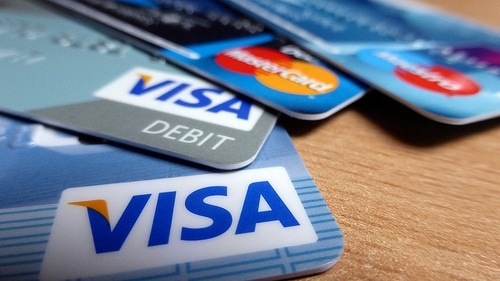Jasmine Birtles
Your money-making expert. Financial journalist, TV and radio personality.


You want some money to borrow but you don’t know how. It is confusing. We’re often asked how to borrow money and what is the best way to borrow money. This is why we’ve put together this guide showing you how to work out what is the best way to borrow money.
Borrowing is an important part of life and a key part of being in business. Actually, the word ‘borrow’ can be a bit misleading because we actually ‘buy’ the money we ‘borrow’ – or rather we ‘rent’ it.
 1. You get a sum of money from a lender who then wants it paid back over a period of time, just as long as you pay back a bit more than you borrowed – sometimes quite a lot more than a ‘bit’.
1. You get a sum of money from a lender who then wants it paid back over a period of time, just as long as you pay back a bit more than you borrowed – sometimes quite a lot more than a ‘bit’.
2. This extra bit is called interest and it’s basically how they charge you for the joy and thrill of having their money for a while.
3. The extra amount you pay (the interest) depends on how much money you borrow and how long it takes you for you to pay it back.
4. The longer you take to pay it back, the more money you end up paying overall.
5. The higher the interest rate (usually shown as an APR, or Annual Percentage Rate) the more money you end up paying overall. This is why we keep saying that the quicker you pay any debt off, the cheaper it is. That goes for mortgages too.
 Interest free credit – this can spare you having to shell out a sizeable chunk of change initially and can be paid over a period of time, or paid off as a lump sum at the end of a set time frame. Usually you don’t have to pay anything initially – maybe six months or a year – and then you have to start dishing out the cash to the shop and lots of companies charge hefty fees if you do not pay it off.
Interest free credit – this can spare you having to shell out a sizeable chunk of change initially and can be paid over a period of time, or paid off as a lump sum at the end of a set time frame. Usually you don’t have to pay anything initially – maybe six months or a year – and then you have to start dishing out the cash to the shop and lots of companies charge hefty fees if you do not pay it off.
To help you make the right decision, we explore various scenarios to highlight how different circumstances call for a different point of action:
You have excellent credit history and you want to borrow money for a big one-off purchase, with the least risk to yourself
 Lenders are pretty fussy about who they will lend to, but if you have a blemish-free credit record, you can expect to be accepted on the best buys.
Lenders are pretty fussy about who they will lend to, but if you have a blemish-free credit record, you can expect to be accepted on the best buys.
Generally, when you’re borrowing for a specific purchase such as a car an unsecured personal loan is the most viable option. These are set at a fixed rate so you know what you’ll be paying each month from the word go and you don’t have to worry about the rate changing. Check out the cheapest loans here and then see how they compare to the rates offered by social lending websites such as Zopa.
You have a good credit rating and need a short term loan
A credit card may work out cheaper for purchases and you could borrow money for free as long as you clear your bills in full each month.
If you need to borrow money for longer than 30 days, pick a card with the longest interest-free period for new spending – see the best buys here – so that you can avoid paying any interest for a set period of time.
However, credit cards shouldn’t be used to borrow as and when you feel like it. Make sure you borrow the least amount possible, make at least the minimum repayments each month and clear the debt before the 0% period ends to avoid getting into trouble. Watch out for nasty charges, for example, using your card to withdraw cash and you could be hit with an instant fee plus sky high interest the minute that money is in your hand.
You have a really poor credit rating and you want to borrow a small amount of money for a short time
If you can’t access the top credit cards, look to alternatives such as credit unions. These offer members the chance to save their money for a decent and reliable return, with that money being lent out to other members at an affordable rate. This isn’t a quick fix as you will need to be an established member of a credit union and have already set up a savings account before you can get a loan, but it is a fantastic option if you’re struggling with the banks. Find one near you on the FindYourCreditUnion website.
Whatever you decide, don’t be tempted into payday loans – we show you how dangerous they can be here. We’re not fans of pawnbroking here at Moneymagpie but if you’re desperate, a pawnbroker is usually better than a payday loan company. Websites such as Borro.com don’t carry out a credit check because the loan they will offer you is secured (they have the security of your valuable item, and will sell it if you don’t pay off the loan) but you must be absolutely clear about the interest rate and watch out for any penalties.
You have only a few blips on your credit record and you want the cheapest form of loan
If you have a decent enough credit record with plenty of equity in your home a secured loan can be a good option.
Secured loans are usually cheaper in terms of monthly payments and easier to get than unsecured loans because the loans are ‘secure’ for the lenders and they are more willing to lend to those with imperfect credit scores.
You can borrow much more with a secured loan – up to £100,000 in comparison to the £25,000 maximum on unsecured loans – and for a longer period which is why you can be pay smaller monthly repayments. This does mean you’ll end up paying more in interest, however, so don’t take this decision without careful consideration of the alternatives. Read our guide to secure loans for more help.
You have a decent credit rating and want to borrow small amounts to cover a short-term cash flow problem
Despite all the controversy about bank overdraft charges, if you’re careful, you can sometimes borrow money cheaply on an agreed overdraft with your bank account.
Overdrafts are more flexible than loans because you pay them back when you can. They can also be extremely cheap if you’re credit rating is good enough and the bank is willing to offer you a cheap overdraft. For example some accounts offer deals such as a 12 month 0% overdraft (although you usually need to switch over all your direct debits and pay in a set amount per month).
However, this is not a good option if you need to borrow a large amount over a long term because the interest rate is typically higher once any interest free period is over. Also, if you go over the agreed overdraft limit, your bank could hit you with some hefty charges.
You have existing credit card debt and you want to make it cheaper
In this case, a personal loan is unlikely to be the cheapest option and you should look instead for a credit card balance transfer deal instead. These are cards available which allow you to move across debt from other cards and pay them at a cheap rate. Some offer several months at 0% (read about them here) which may work well if you can pay back the debt within the interest-free period.
Otherwise, a long term low rate is your best bet because you can put the card to one side and pay it off at a cheap rate until it has been cleared. The best of these cards offer one rate for the lifetime of the balance but rates will vary depending on how long you think it will take to repay. Check out the best buys in this article or compare other cards here.
